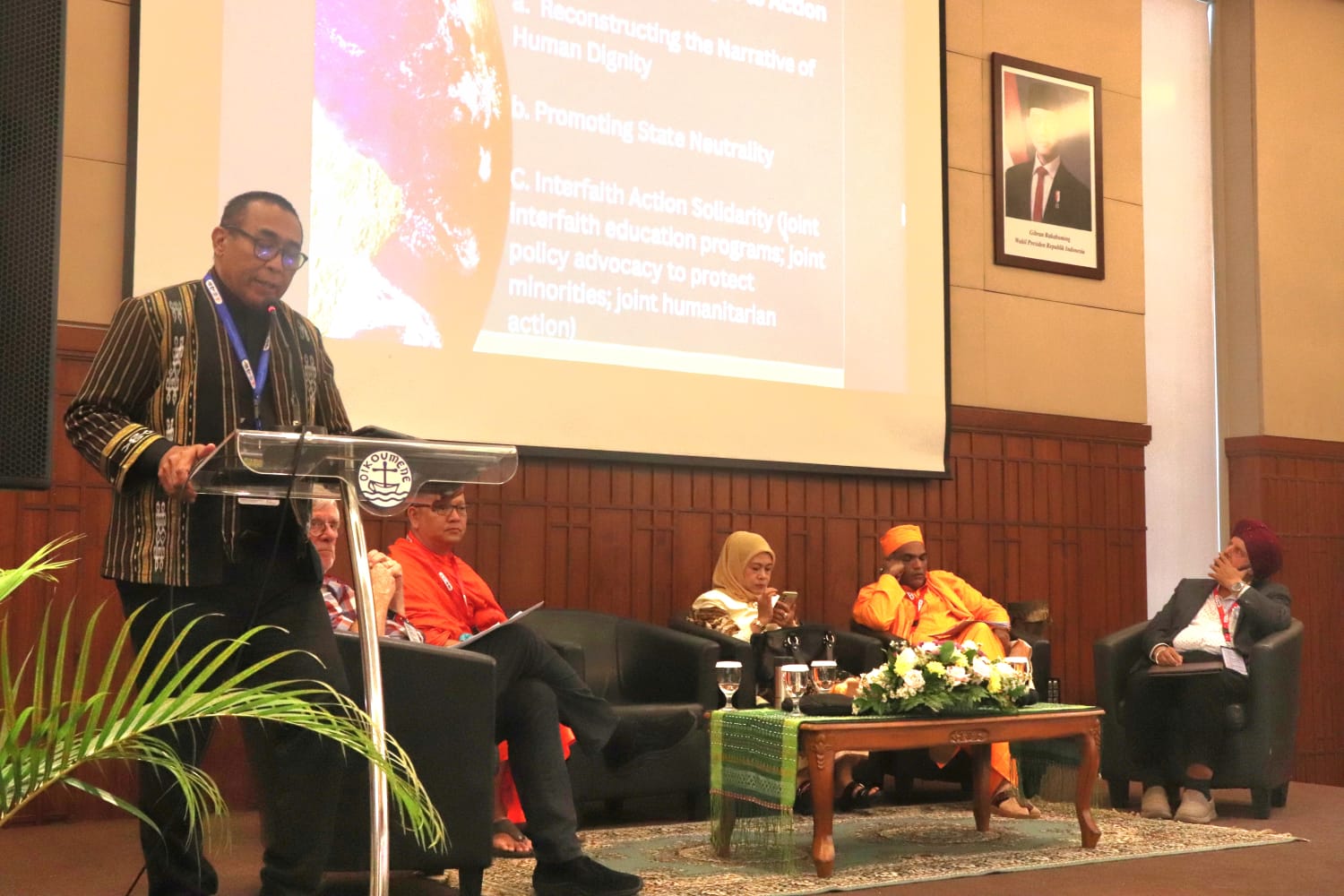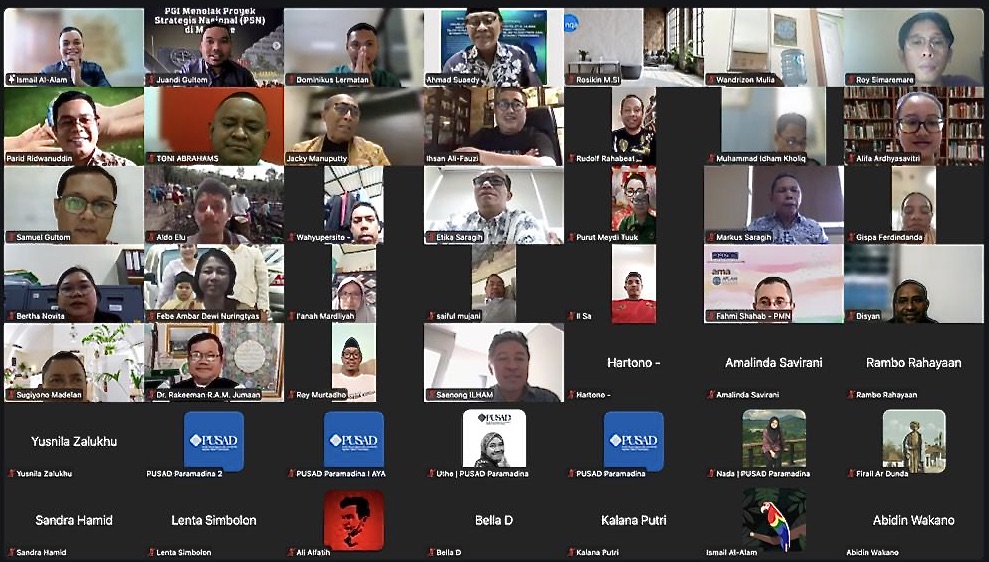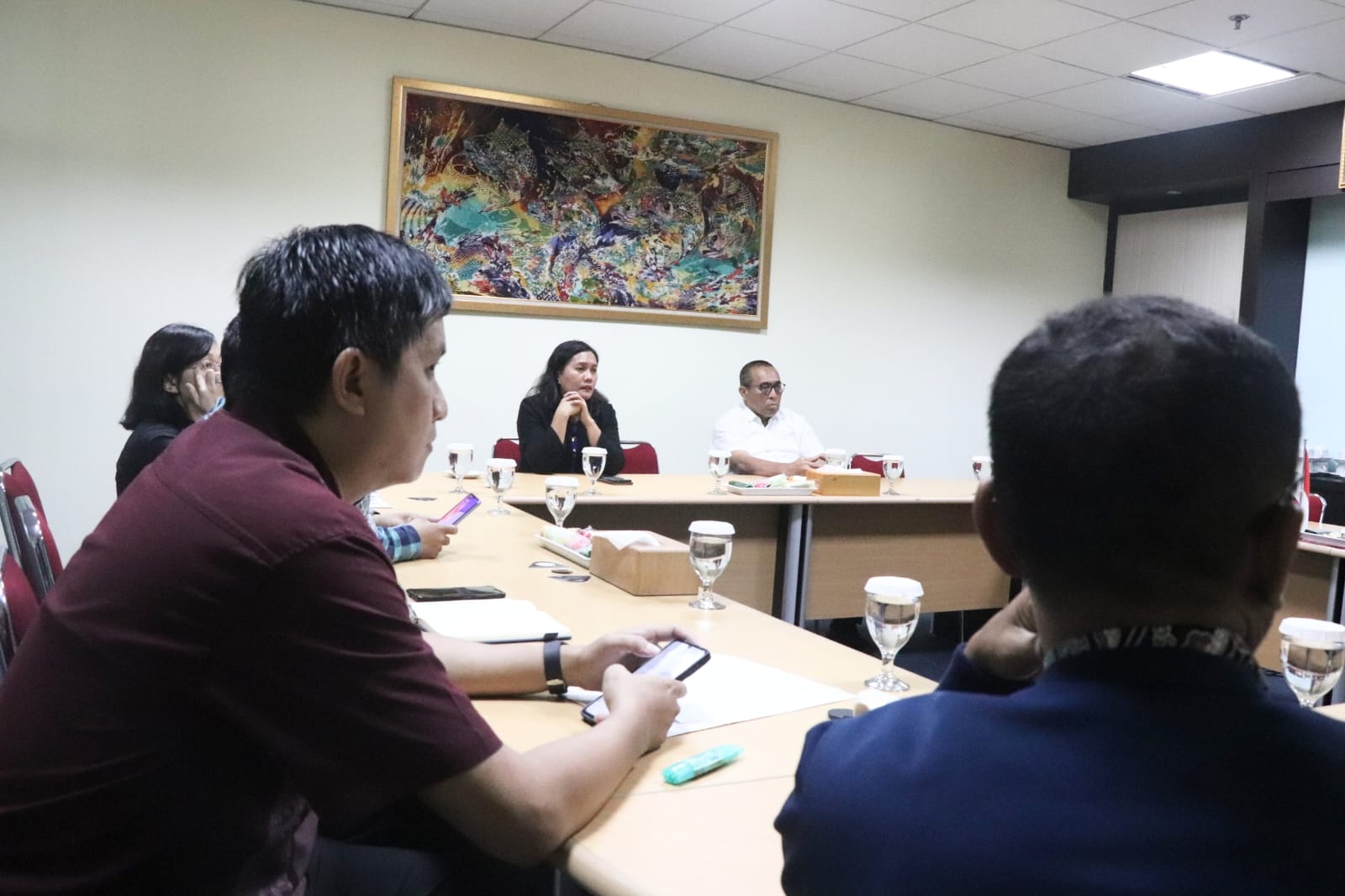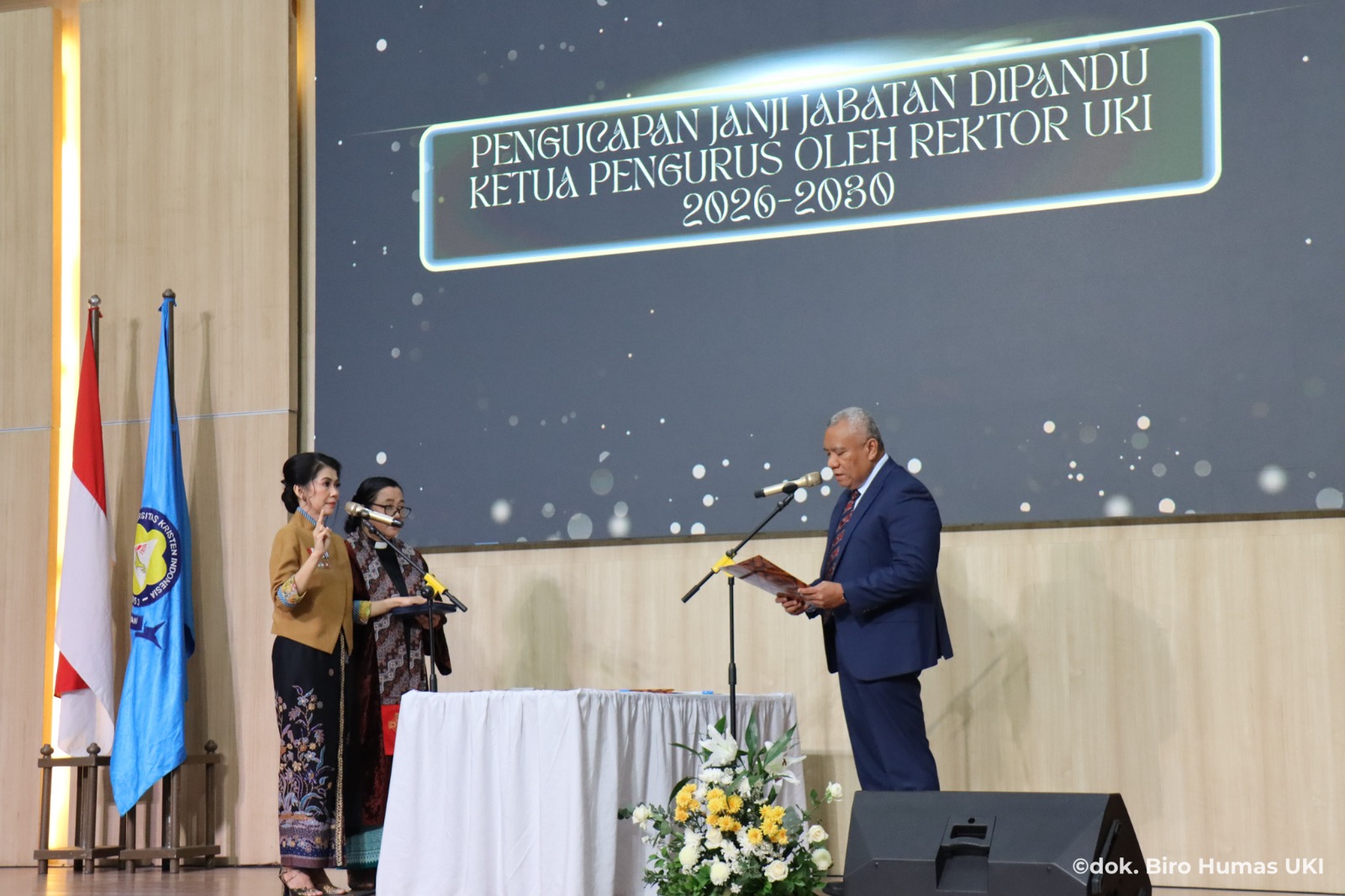Christian Conference of Asia – Inter-Religious Conference on Freedom of Religion and the Rights of Religious Minorities in Asia
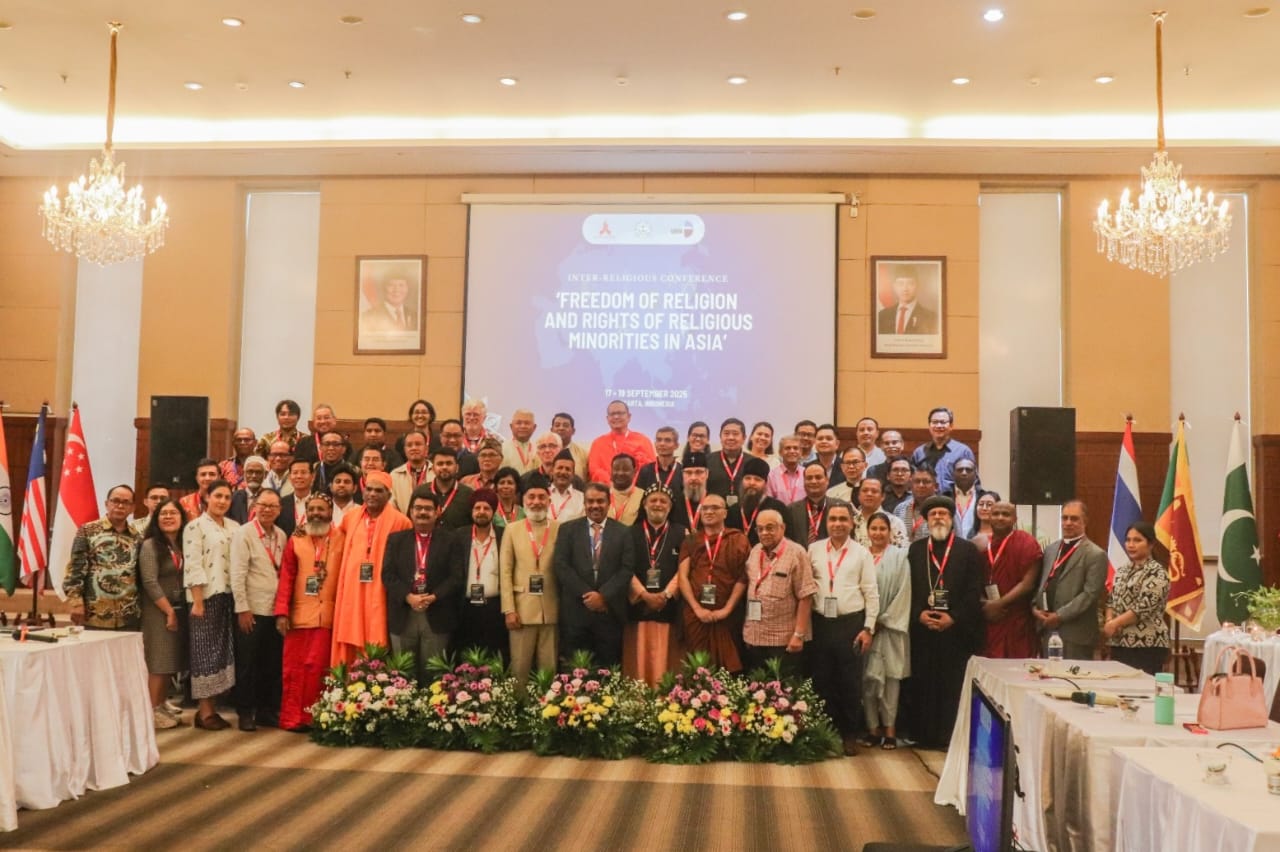

Alfian Rico Komimbin
19 Sep 2025 16:47

A Historic Convergence in Jakarta
Jakarta became the stage for a defining moment in Asia’s interfaith history as the Christian Conference of Asia (CCA) convened its Inter-Religious Conference on Freedom of Religion and the Rights of Religious Minorities in Asia (17–19 September 2025). Hosted by the Communion of Churches in Indonesia at Grha Oikoumene, the gathering brought together leaders and scholars from diverse faith traditions to deliberate on the growing challenges to religious liberty and the dignity of minorities across Asia.
With its theme rooted in the urgency of countering intolerance, politicization of religion, and systemic marginalization, the conference combined solemn reflection with resolute calls to action. Keynote interventions, theological insights, and interfaith testimonies highlighted both the risks and the opportunities before Asia’s plural societies.
Keynote Speech: A Curriculum of Love
Opening the proceedings, Nasaruddin Umar, Minister of Religious Affairs of Indonesia, set the tone by affirming Indonesia’s vocation as a “rainbow nation” of religious and cultural plurality. He underscored that diversity cannot be imposed by decree; it must be cultivated through a deeper moral foundation. This conviction, he explained, inspired the Ministry’s Curriculum of Love (Kurikulum Cinta)—an educational initiative grounding pedagogy in empathy, compassion, and respect.
Umar’s keynote moved beyond policy language into moral appeal: true love of God requires love of humanity, and differences in belief must be regarded not as threats but as opportunities for enrichment. He pointed to the Istiqlal Declaration and the symbolic Silaturahmi Tunnel connecting Jakarta’s grand mosque and cathedral as living metaphors of Indonesia’s aspiration: faiths not in competition but in cooperation, divided not by walls but joined by bridges
The Minister warned, however, that across Asia, the misuse of religion for political gain and exclusion poses a grave threat. He insisted that the antidote is not reciprocal hatred but education rooted in love, shaping future citizens to defend not only their own rights but also those of the marginalized. For Indonesia, he concluded, such protection of diversity is not merely constitutional duty but spiritual duty—a form of worship and devotion to the Divine
Setting the Framework
In his framing presentation, Dr. Matthews George Chunakara, General Secretary of the CCA, situated the conversation within a broader Asian crisis. He underscored the paradox of a continent that is both home to the world’s greatest religious diversity and the epicenter of rising intolerance, discrimination, and religious-based violence. Chunakara drew attention to the structural politicization of religion: its exploitation to sustain authoritarian regimes, consolidate nationalism, and curtail civil liberties. He highlighted how international human rights instruments—such as the Universal Declaration of Human Rights and the International Covenant on Civil and Political Rights—often remain far removed from the lived reality of Asia’s minorities. His message was unequivocal: religious freedom and the dignity of minorities are not optional concessions but essential conditions for human civilization in Asia.
Inter-Religious Perspectives on Human Dignity and Rights
Prof. Musdah Mulia offered the Muslim perspective by grounding human dignity in Islamic theology. Drawing on the Qur’anic vision of khalīfah fil-ardh (vicegerents on earth), she emphasized that human beings are endowed with inherent worth (Q. 17:70) and tasked with the mission of justice and transformation (amar ma‘rûf nahi munkar). Her presentation emphasized the objectives of Islamic law (maqāṣid al-sharī‘ah), which enshrine rights to life, freedom of religion, opinion, health, and property. Mulia criticized rigid patriarchal interpretations and the politicization of religion that distort Islam’s liberative message. Instead, she called for reformist readings of Islamic jurisprudence, inclusive policies, and a humanist education capable of elevating women, protecting the weak, and nurturing plural societies. For her, interfaith dialogue is indispensable: human dignity transcends religious boundaries, and cooperation across traditions is a strategic vehicle for dismantling stereotypes and building inclusive societies
Speaking from the Sikh tradition, Rachpal Singh highlighted the foundational principles laid down by Guru Nanak in the 15th century: one God, one humanity, and equality beyond caste, race, or religion. He illustrated this ethic with examples such as the Langar (community kitchen), which enacts radical equality by feeding all without distinction, and the historic defense of religious freedom by Guru Tegh Bahadur, who sacrificed his life to protect Hindus’ right to practice their faith. Singh linked Sikh principles to contemporary practice, citing seva (selfless service) during the COVID-19 pandemic and the Farmers’ Protest in India, where Sikhs combined peaceful resistance with humanitarian service. For Sikhism, he argued, dignity is not abstract: it is embodied in feeding the hungry, defending the oppressed, and ensuring no one is turned away. He concluded with an interfaith appeal: dignity is a spiritual duty, not only a legal claim. To deny another’s freedom of worship is to deny one’s own dignity.
Bishop Joshua Mar Ignathios, Chair of the Catholic Bishops’ Conference of India’s Commission for Ecumenism and Dialogue, drew the assembly’s attention to the acute crisis facing Christians in India. He cited alarming statistics: 745 incidents of anti-Christian violence reported in 2024, compared with only 127 in 2014—a sixfold increase. Systematic persecution has manifested in physical violence, arbitrary arrests, destruction of churches, and coerced “reconversions” Joshua underscored the legal paradox: while India’s constitution guarantees religious freedom, anti-conversion laws and discriminatory citizenship policies have institutionalized persecution. He warned that such developments not only betray constitutional commitments but also international human rights treaties ratified by India. Despite these challenges, Joshua noted the courage of India’s Christian communities, who continue to resist peacefully, protest non-violently, and advocate through democratic processes. He urged the Asian church to stand in solidarity through prayer, advocacy, practical support, and learning from the witness of India’s persecuted Christians.
In the conference’s final plenary, Rev. Jacklevyn “Jacky” Manuputty articulated a Christian theological response grounded in the concept of Imago Dei. Citing Genesis 1:27, he affirmed that every human being is created in the image of God—a truth that forbids discrimination, justifies protection of minorities, and renders violence against any community a blasphemy against the Creator. Manuputty expanded the framework by linking Imago Dei with Missio Dei, arguing that if all humans bear divine image, then God’s mission is reconciliation, renewal, and restoration of creation. This interfaith ethic, he suggested, demands movement beyond anthropocentrism toward cosmocentrism, and beyond mere tolerance toward solidarity. He concluded with a call to interfaith action: reconstructing narratives of human dignity, promoting state neutrality, and building solidarity through education, policy advocacy, and humanitarian collaboration. “Asia must not be inherited as a continent of wounds,” he declared, “but as a shared home rooted in dignity, freedom, and universal love”.
Toward a Shared Horizon
The Jakarta conference crystallized both the urgency of the crisis and the possibilities for hope. From the Minister’s Curriculum of Love to theological affirmations across Islam, Sikhism, Catholicism, and Indonesian Christianity, the message was clear: religious freedom is not negotiable, and minority rights are non-derogable. What emerged was not only dialogue but a collective commitment to action. Participants affirmed three shared convictions: 1. Every human being is the image of God; 2. Human dignity is the foundation of universal ethics; 3. Religious freedom is a fundamental right that must be protected without compromise.
From Jakarta, the call resounded: Asia must move from crisis to civilization, from division to solidarity, and from politicized religion to sacred humanity. This interfaith gathering stood as both witness and catalyst—demanding that Asia’s future be written not in exclusion but in cooperation, not in fear but in love.
Berikan Komentar
Alamat email anda tidak akan dipublish, form yang wajib diisi *
Berita & Peristiwa
Penolakan Terhadap PSN, PGI Diapresiasi Akademisi dan Pekerja Lingkung...
JAKARTA,PGI.OR.ID-Penolakan Persekutuan Gereja-gereja di Indonesia (PGI) terhadap Proyek Strategis Nasional (P...
Audiensi MGMP PAK SMA–SMK DKI Jakarta ke PGI. Perkuat Sinergi Pend...
JAKARTA,PGI.OR.ID-Persekutuan Gereja-gereja di Indonesia (PGI) menerima audiensi Musyawarah Guru Mata Pelajara...
Prof. Angel Damayanti Resmi Dilantik sebagai Rektor UKI yang Baru. PGI...
JAKARTA,PGI.OR.ID-Prof. Angel Damayanti resmi melanjutkan estafet kepemimpinan sebagai Rektor Universitas Kri...


